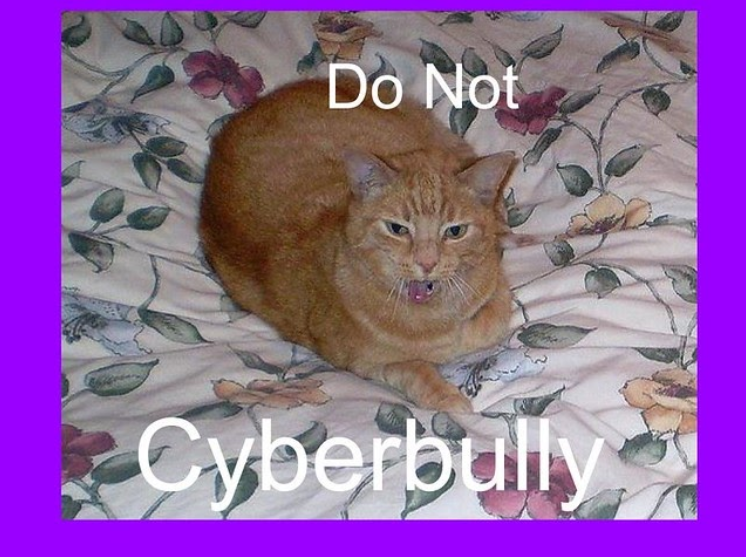“Stupid shit”, “Fat ass”, “Slut”.
These words, though easy to type, can greatly affect the emotional wellbeing of the person they are directed at.
According to this CNA article, the rate of cyber bullying has risen over the years, affecting three in four teens. And this has caused many to sit up and take notice.
As an individual who grew up in the internet era and has had her fair share of blogs, I am no stranger to mean comments and insults, both directed to myself and other people.
And boy, those hurtful words do stick with you for a long time.
15-year-old Janelle Koh, who was a victim of cyber bullying, revealed to CNA that people usually brush off cyber bullying as a “normal” occurrence.
A “normal” occurrence that would somehow make victims seem weak if they asked for help.
However, little do those people know that the effects of cyber bullying often bubble within the victims.
In some cases, those negative feelings might manifest in various ways, whether physically, emotionally or psychologically.
So why is this worrying trend still happening today? What can we do to stop it?
First, let’s tackle the main question.
What is cyber bullying?
Here’s a quick definition of what cyber bullying is, according to the Media Literacy Council: It is the use of electronic communication with the intent to intimidate and hurt a person or a group, intentionally or otherwise.
Examples of cyber bullying include sending hurtful messages, spreading rumours online, and circulating humiliating or degrading photos or videos of someone.
 Photo from Flickr/Andrew_Writer
Photo from Flickr/Andrew_Writer
Now that that’s done, let’s get into the details.
Do victims of cyber bullying really have it that hard?
Yes, very much so.
In a CNA survey from 2018, three in four youths said they have been cyber bullied, and only three per cent of them told their parents.
Victims usually suffer from low self-esteem, anxiety, and other psychological trauma that might stay with them for the rest of their lives.
Personally, I had a friend who was insulted online when we were in secondary school. One day, she received an anonymous comment on her blog calling her “fat thigh girl”. She later found out that it was from one of her friends from dance class.
To others, it might have seemed like a mindless comment, but my friend took those words to heart, which in turn, exacerbated her body image issues throughout her teenage years.
Now 25 and having moved on from it, she realises she should have confronted the problem by talking to her parents or teachers about the incident.
Cyber bullying: What is doxxing?
A form of cyber bullying, doxxing is the act of publishing someone’s personal information with the intention to harass.
In May 2019, a 19-year-old undergraduate named Gia Lim shared her traumatic experience of getting doxxed by someone she thought was her friend. Lim said that when she was 16, the “friend” had posted photos of her, accompanied by denigrative and lewd captions on a Tumblr blog.Lim also said that details such as her full name, where she went to school and tuition, and even the subjects she took in school were circulated online.
She stated that the incident affected her so badly that it took a toll on her health, as she felt anxious and depressed during that period.
Three years on, Lim bravely decided to share her experience online to raise awareness of how serious doxxing is.
To victims going through the same thing as her, Lim advises them to seek help through counsellors or people they trust.
She also offers some heartfelt words of encouragement:
“I know coming face-to-face with your emotions can be scary, so know that you can do so at your own pace, and when you’re comfortable. Take your time.”
Could you be an accidental cyber bully?
Being the main perpetrator of cyber bullying is no doubt a horrible thing, but it is also equally horrible to be one of the messengers in the chain.
In 2018, Stranger Things star Millie Bobby Brown became a victim of cyber bullying on Twitter.
Someone had claimed that Brown was racist and homophobic, and even started a hashtag and Twitter account to take her down.
Many Twitter users jumped in on the #takedownmilliebobbybrown bandwagon without understanding that they were fuelling unwarranted hate against the actress.
It got so bad that it resulted in Brown deleting her own Twitter account.
In a more tragic cyber bullying case that took place in September 2010 in the U.S., victim Tyler Clementi committed suicide following a serious violation of his privacy.
Clementi’s then university roommate, Ravi, had set up a secret camera in their shared room to record and stream Clementi being intimate with another man.
According to The Guardian, it is believed that Ravi streamed the video live, and even broadcasted it to 150 of his Twitter followers.
One day after the second webcam viewing, the distraught Clementi reportedly jumped off George Washington bridge, after posting, “Jumping off the gw bridge sorry” on Facebook.
In an interview with CNN in 2018, Clementi’s mother opened up about the trauma following her son’s death.
She mentioned that she kept thinking about the “what ifs”, “could haves”, and “should haves”, and even harboured suicidal thoughts herself before seeking professional help.
What can you do to help?
First of all, do not perpetuate a situation by spreading content that might hurt the individual.
It might sound like basic advice, but try to put yourself in the shoes of the other party and think about how he/she would feel. You wouldn’t want to be the subject of cyber bullying or doxxing, right? Neither does anyone else.
Secondly, report abusive acts regardless of who it happens to.
Remember that internet vigilantism might sometimes border on cyber bullying, and if someone is the target of cyber bullying or doxxing, do not add fuel to the fire by taking matters into your own hands.
For more serious cases, if you have already done all that you can, such as reporting abusive acts and not circulating material, leave the rest to the authorities.
Finally, since the internet loves cats, heed this cat's wise words.
 Photo via Flickr/Dianna Geers
Photo via Flickr/Dianna Geers
Good.
--
If you are a victim of cyber bullying, here are some hotlines you can call to seek help.
Better Internet Campaign
The Better Internet Campaign is the Media Literacy Council’s (MLC) flagship campaign to champion media literacy in Singapore.
Based on the theme #1ClickAway, the campaign is centred around the message of “Be Safe, Be Smart, and Be Kind”.
This article is the second of three pieces that aim to help Singaporeans understand the power of a simple click. It encourages netizens to build a safer, smarter and kinder internet by embracing conscious and discerning online actions.
For more information, visit 1 Click SG.
Top photo from Getty Images.
This sponsored article by the Better Internet Campaign makes Mothership.sg writers believe in a utopian online world where discussions could happen without hate comments.
If you like what you read, follow us on Facebook, Instagram, Twitter and Telegram to get the latest updates.
